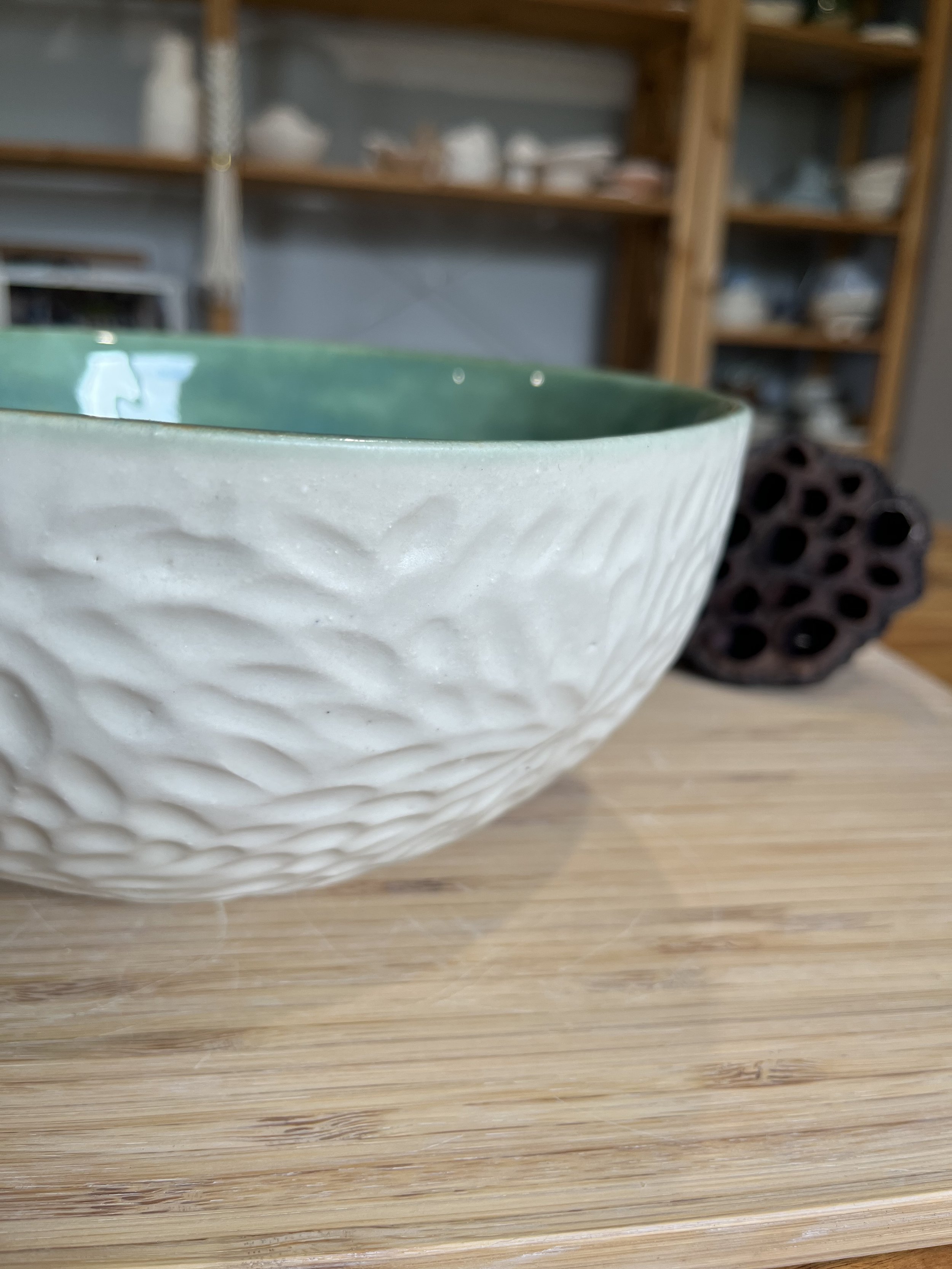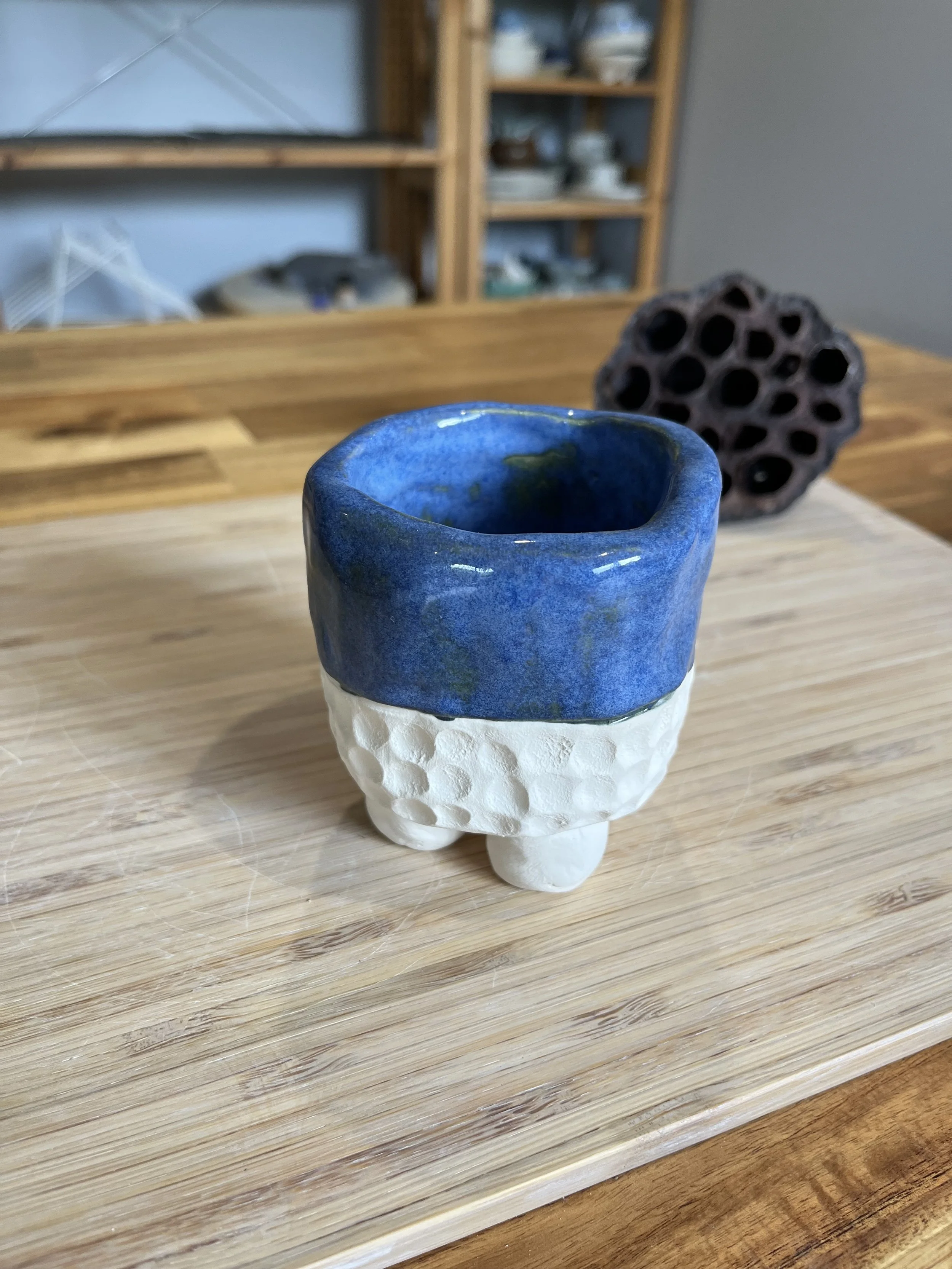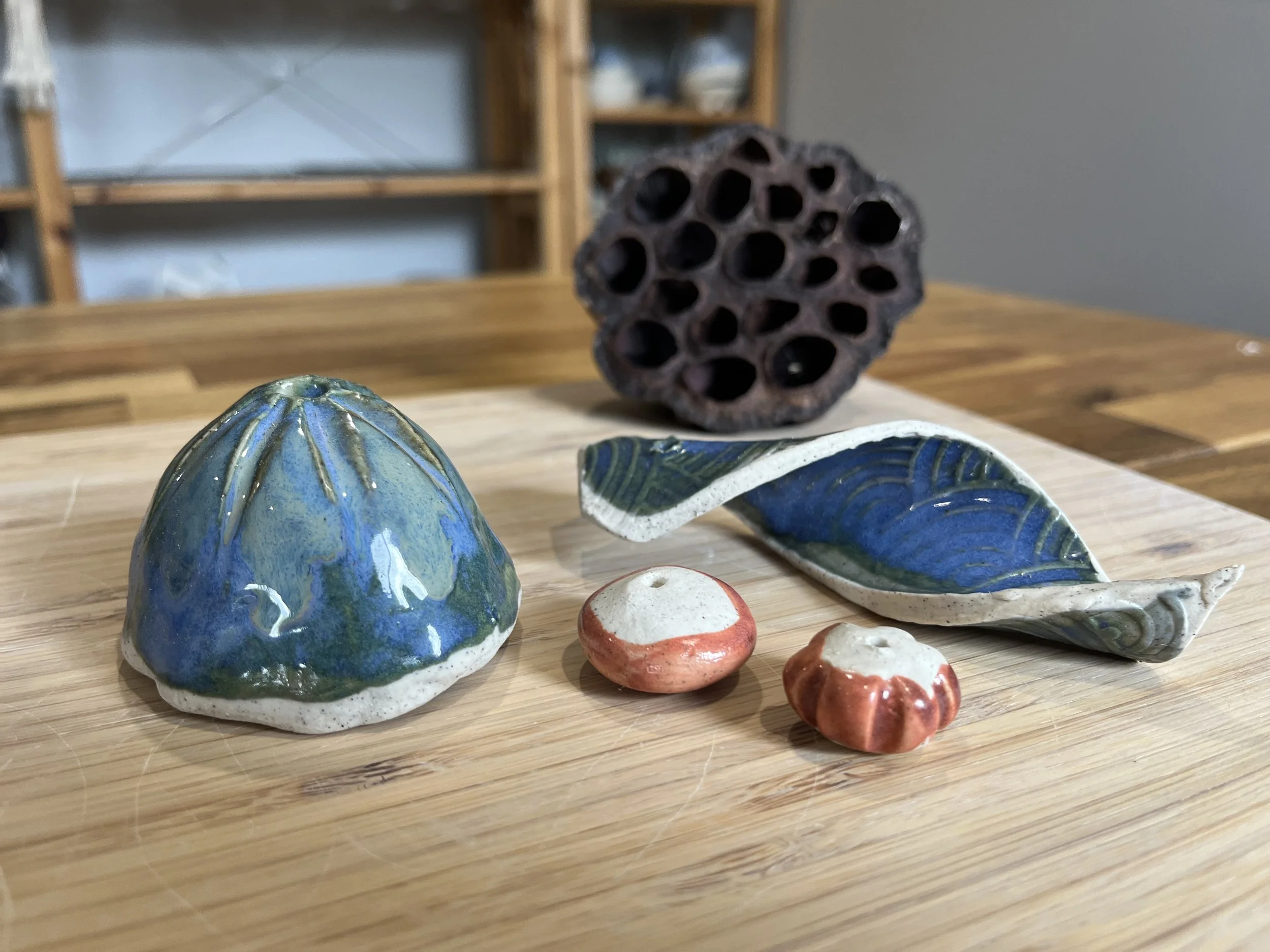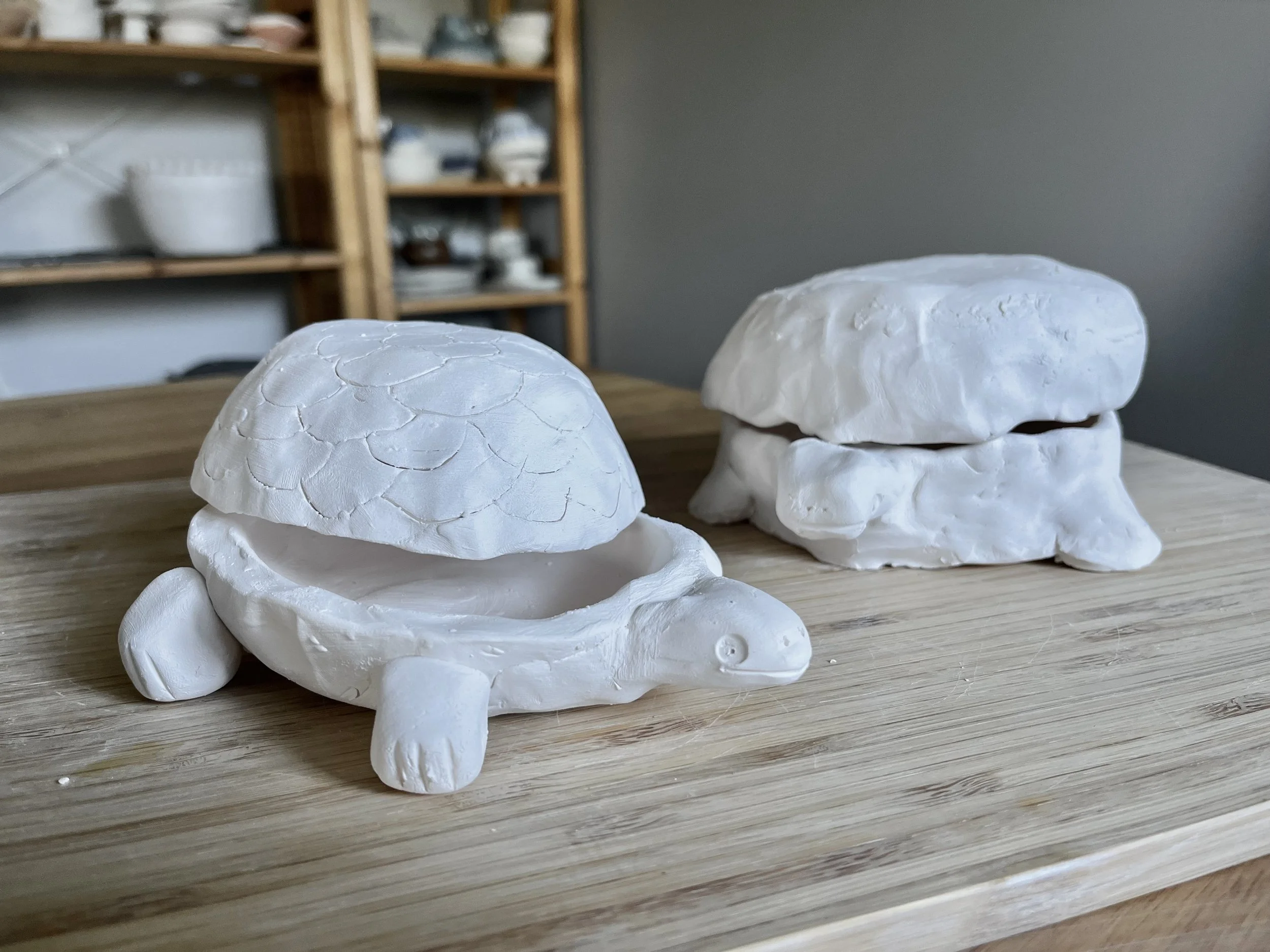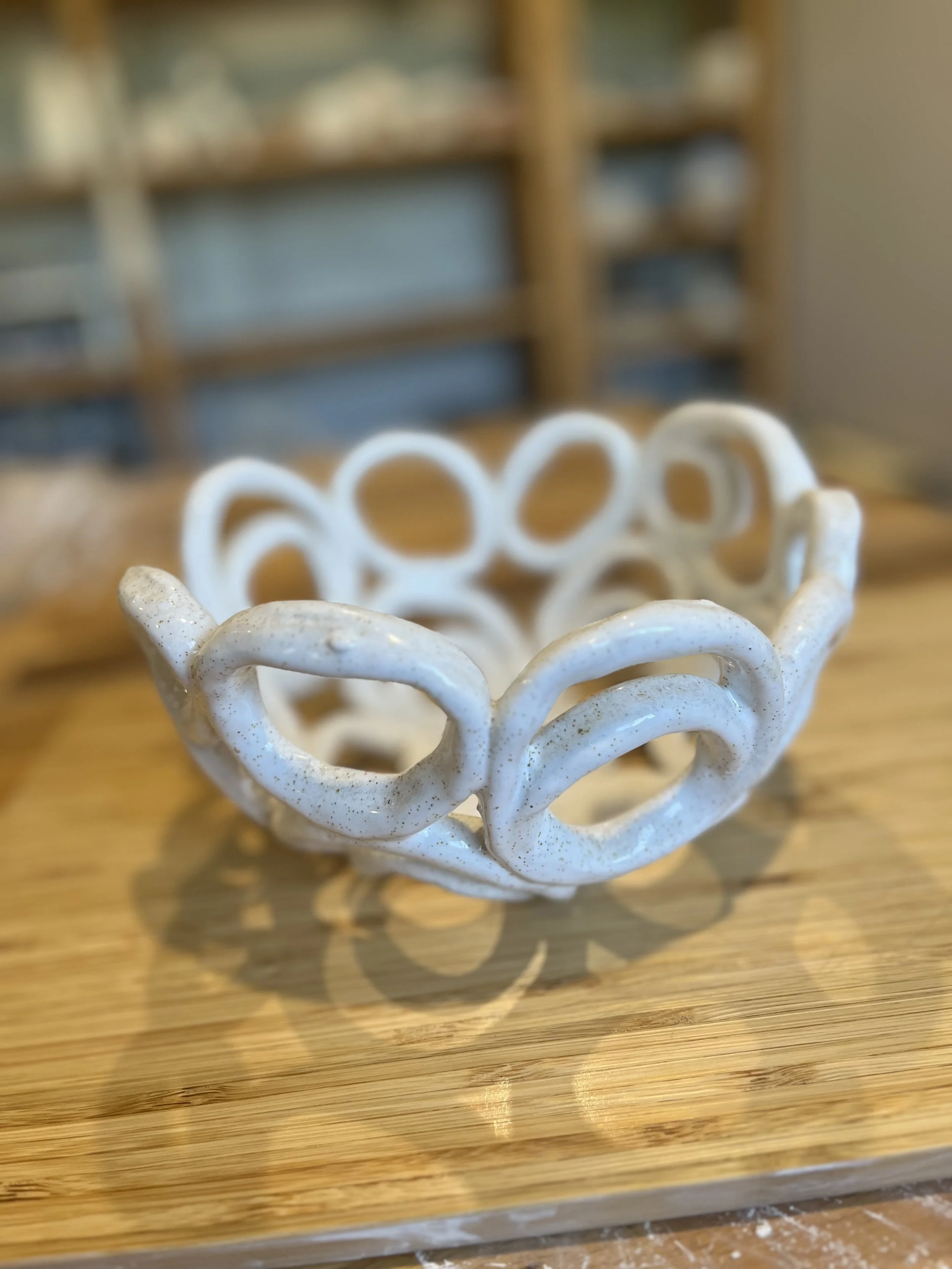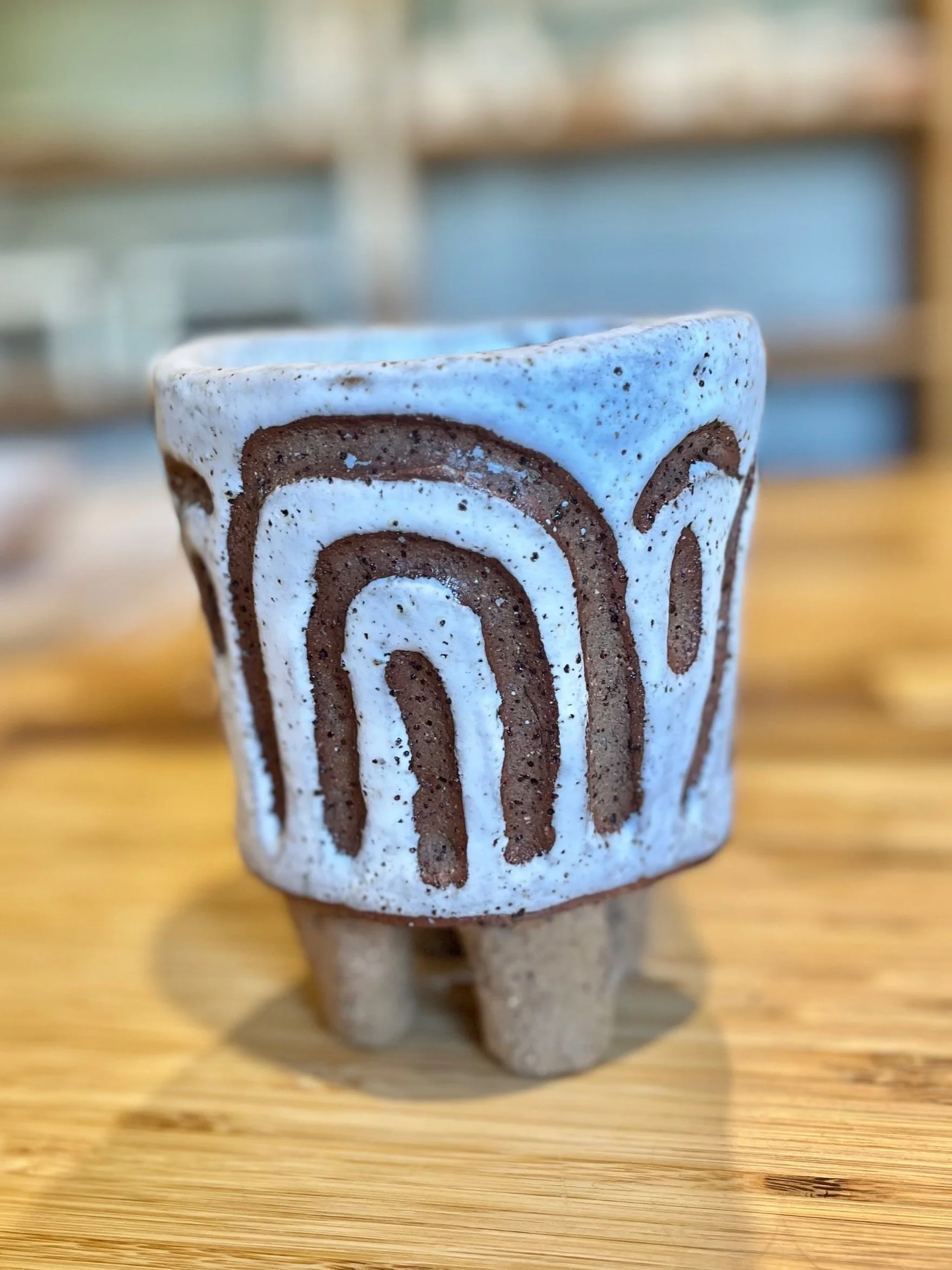
Pottery
Occupational Therapy Sessions
Rise
・
Shine
・
Grow
𑁍
Rise ・ Shine ・ Grow 𑁍
Lotus Therapy is excited to offer occupational therapy focused pottery sessions, in our pottery studio. These 1hr ongoing (weekly or fortnightly) pottery sessions with one of our OT’s are designed to be fun and hands on, while continuing to work towards your NDIS goals. Sessions include all the clay, material and tools, glazing and firing of your creations.
Therapeutic pottery sessions may be a great alternative to for children (6+ years), teenagers or adults that have had trouble engaging or connecting with traditional therapy.
Pottery can be a therapeutic activity, acting as a form of therapy that promotes mindfulness, reduces stress and anxiety, and encourages self-expression and emotional regulation. It also works on fine and gross motor skills, core strength, executive function, planning, sequencing and problem-solving skills.
Stress and Anxiety Reduction: The act of focusing on the tactile experience of working with clay can help to reduce stress and anxiety by shifting attention away from worries and negative thoughts. Clay therapy can lower stress hormones and reduce blood pressure and heart rate.
Mindfulness and Grounding: Pottery requires complete attention to the task at hand, fostering a state of mindfulness and helping individuals connect with the present moment.
Emotional Expression: Clay provides a medium for expressing emotions and experiences that may be difficult to articulate verbally, promoting self-discovery and healing.
Improved Self-Esteem: The process of creating something tangible and beautiful can boost self-esteem and provide a sense of accomplishment.
Sensory: Clay provides a highly tactile and sensory experience. Squeezing, pressing and manipulating clay, actively engages your sensory systems
Cognitive Function: Pottery can improve cognitive function by engaging in a creative process that requires problem-solving and fine motor skills. Manipulating objects with your hands and watching the changes is also a vital part of cognitive development.
Resilience and Self-Acceptance: The process of pottery can teach resilience and self-acceptance, as it involves embracing imperfections and learning from mistakes.
Trauma: Pottery can be particularly helpful for individuals that have experiences trauma, as it provides a safe and non-judgmental environment for processing traumatic experiences.
Improved Fine Motor Skills: Working with clay can enhance fine motor skills and hand-eye coordination.
Increased Muscle Strength: The repetitive motions involved in pottery can help to build muscle strength in the hands and arms. It also works your core muscles and supports postural strength.
Relaxation: The tactile nature of clay can be soothing and relaxing, promoting a sense of calm and well-being. The nature of working with clay is very grounding and organic, promoting a sense of stillness and self-connection.
Not everything you make needs to be finished or kept,
it’s about the therapeutic process of working with clay.
Allow yourself the space to make mistakes, observe, learn and grow.
Occupational therapy focused pottery sessions







